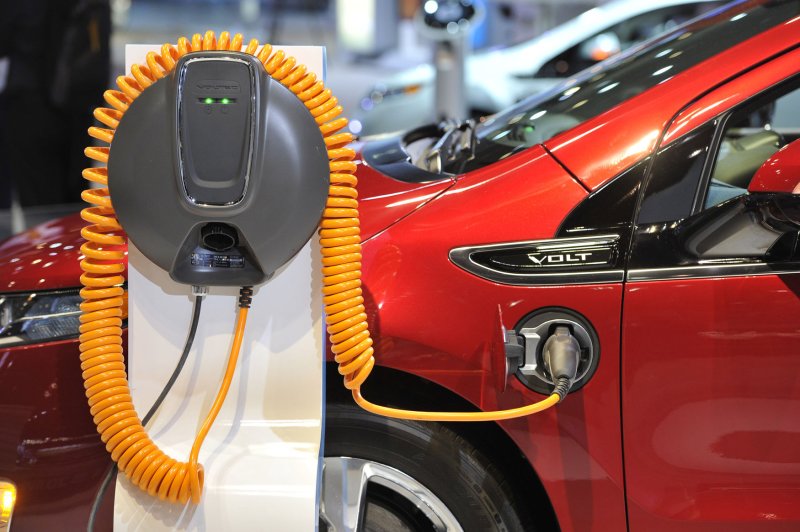1 of 4 | A Chevy Volt charger is displayed at the Chicago Auto Show at McCormick Place in Chicago on February 9, 2011. UPI/Brian Kersey |
License Photo
WASHINGTON, July 29 (UPI) -- U.S. President Barack Obama announced fuel economy standards Friday that would push the average rate to 54.5 miles per gallon by 2025.
Thirteen major automakers embraced the new standards, which Obama called "the single most important step we've ever taken as a nation to reduce our dependence on foreign oil."
Obama was joined by representatives of Ford, General Motors, Chrysler, BMW, Honda, Hyundai, Jaguar/Land Rover, Kia, Mazda, Mitsubishi, Nissan, Toyota and Volvo -- which account for 90 percent of vehicles sold in the United States -- at the Walter E. Washington Convention Center in Washington to announce the standards.
"Most of the companies here today were part of an agreement we reached two years ago to raise the fuel efficiency of their cars over the next five years," Obama said. "We've set an aggressive target and the companies are stepping up to the plate. By 2025, the average fuel economy of their vehicles will nearly double to almost 55 miles per gallon."
Mileage standards are set to rise to 35.5 mpg for the 2012-16 car and light truck models.
Experts estimate the initial increase will save U.S. drivers $1.7 trillion in fuel costs, increasing to more than $8,000 per vehicle by 2025.
"Additionally, these programs will dramatically cut the oil we consume, saving a total of 12 billion barrels of oil, and by 2025 reduce oil consumption by 2.2 million barrels a day -- as much as half of the oil we import from OPEC every day," the White House said.
The administration, which originally wanted 56.2 mpg by 2025, gave Detroit's Big Three leeway to keep building profitable sport utility vehicles and pickup trucks, officials told The Detroit News.
The agreement includes average increases in fuel economy of 5 percent for passenger cars and 3.5 percent for light trucks through 2021, with a 5 percent increase for all vehicles after that, officials said.
The proposal will be formalized by Sept. 30 and the final rule will be completed next July, the officials said.















